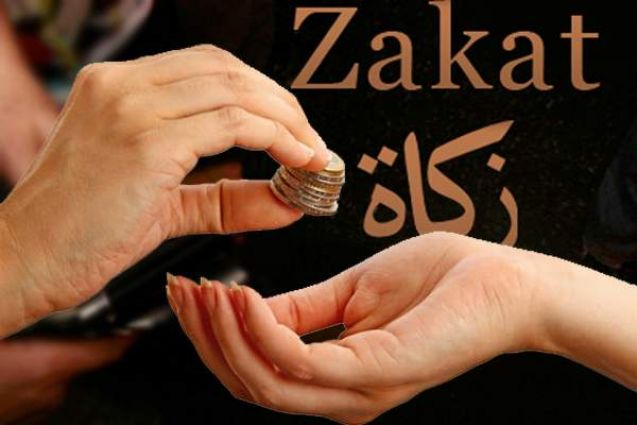As one of the Five Pillars of Islam, zakat is a religious obligation for all Muslims, and demands the donation of a portion of wealth to the poor and ones in need. The act is usually carried out in the month of Ramadan and is therefore proceeding at present. However, the offering of zakat is very strict, and follows careful calculations of wealth, as well as the prosperity status of the recipients.

What is Zakat?
Zakat is an Islamic term that refers to one of the five obligations on Muslims in which the individual has to donate a certain amount of wealth annually to charitable causes. In Islam, the obligation comes right after Namaz, and therefore possesses critical importance.
Moreover, Zakat is a compulsory process for Muslims and is regarded as a form of worship. From teachings of Quran and prophet Muhammad (P.B.U.H), it is gathered that Zakat purifies the total earnings and savings that are above the basic family requirements. Hence, for Muslims, this act of worship acquires a prestigious rank as they wholeheartedly give away the accurate amount of wealth every year to the ones in need.

How it works?
Although Zakat is one of the five pillars of Islam, it follows certain wealth criteria, and hence, any individual below the set standards is free of this obligation. Zakat is obliged on Muslims earning above a certain threshold and should not be confused with Sadaqah, the act of voluntarily giving charitable gifts out of kindness or generosity.
Other than the fortune rank of the donor, the second condition for Zakat is the recipient.

According to the Quran’s Surah Al-Tawba, there are eight categories of people (asnaf) who qualify to benefit from zakat funds.
- Those living without means of livelihood – the poor.
- Those who cannot meet their basic needs – the needy.
- To zakat collectors.
- To persuade those sympathetic to or expected to convert to Islam, recent converts to Islam, and potential allies in the cause of Islam.
- To free from slavery or servitude, slaves of Muslims who have or intend to free from their master.
- Those who have incurred overwhelming debts while attempting to satisfy their basic needs, debtors who in pursuit of a worthy goal incurred a debt.
- Those fighting for a religious cause or a cause of God, or for Jihad in the way of Allah by means of pen, word, or sword, or for Islamic warriors who fight against the unbelievers but are not salaried soldiers.
- Wayfarers, stranded travellers, travellers who are traveling with a worthy goal but cannot reach their destination without financial assistance.
Moreover, Zakat should not be given to one’s own parents, grandparents, children, grandchildren, spouses or the descendants of the Prophet Muhammad (Syed.)
Hence, the recipient of Zakat is to be picked wisely for the fulfillment of this obligation. And, for that reason, most people donate the calculated amount of wealth to mosques, imams, hospitals, and madrasa.
Read More: Ehsaas Kafalat Program 2021 Application, Eligibility Status Check
Calculation of Zakat
Zakat vs. Nisab
Nisab is a term that often appears alongside zakat. It is a threshold, referring to the minimum amount of wealth and possessions that a Muslim must own before being obligated to pay zakat. In other words, if personal wealth is below the nisab during one lunar year, no zakat is owed for that period.
However, if a year has passed to the saved wealth, be it in the form of silver, gold or cash, the person is obliged to give away the portion of zakah to the deprived and poor. As per Islamic rulings, Muslims are to donate an amount equal to 2.5% percent of savings and financial assets that are not used towards living expenses.

Even though government fixes the nisab limit every year, each Muslim is guided to calculate their own zakatable net-worth. And following is the example of calculating your zakat. And, for that reason, here is how it is to be calculated.
Firstly, government has given the nisab value for 2021 to be 80,933 PKR, which is equal to the value of 52.5 tola silver according to the market rate.
Now, to calculate zakat:
For instance, if person A owns assets worth Rs100,000 and their liabilities are Rs10,000, the difference between their assets and liabilities comes out to Rs90,000, which is that person’s zakatable net-worth. Since this value is greater than the Nisab limit set by the government, Zakat is obligatory on this person.
Likewise, Zakat is to be calculated for all the saved wealth, which includes cash, gold, silver, tradable goods, livestock and agriculture products etc.
The aforementioned good are to be converted into their rupees value, and whatever the total, it’s 2.5% is to be given as Zakat.
It is pertinent to mention, Zakah is only obliged on goods saved for at least a year. This rule implies on cash also.
To conclude, Zakat is one of the most significant assets of Islam, and therefore, anyone who slacks from this duty, slacks from the religion Islam, and has strict punishments in the life hereafter.
Read More: Scholarships at South Korea Universities for international students
Follow INCPAK on Facebook | Twitter | Instagram for updates.







![CDA Electric Buses – Operational Routes [March 2025]](https://www.incpak.com/wp-content/uploads/2025/03/CDA-bus-Routes-350x250.jpg)









